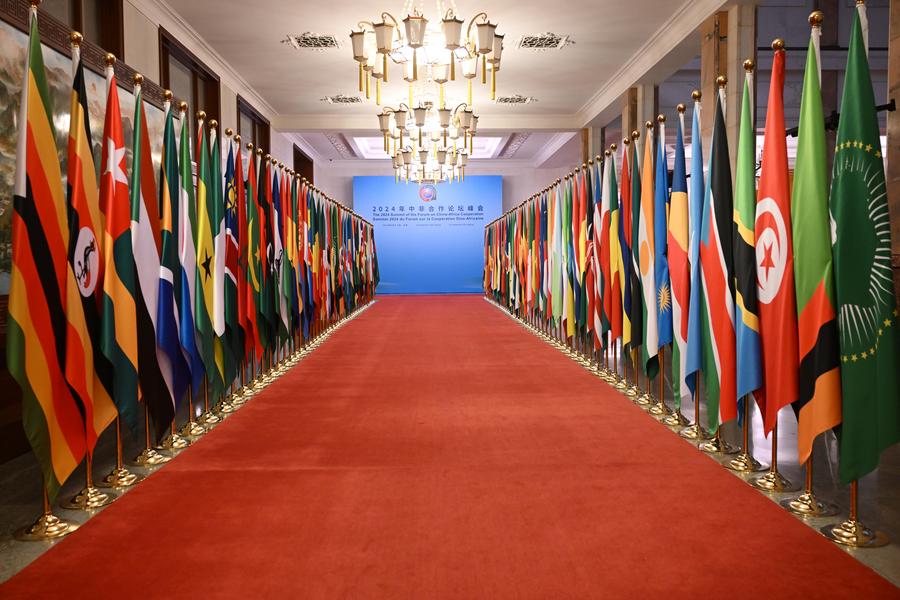33 African Countries Benefit from a Historic Tariff Exemption by China Since December 1, 2024

As of December 1, 2024, China has implemented a groundbreaking policy: a full tariff exemption for all product lines from over 40 least-developed countries (LDCs), including 33 African nations. This initiative highlights Beijing’s commitment to supporting the economic development of its partners in Africa while strengthening South-South trade ties.
Expanded Access to the Chinese Market: A Unique Opportunity for Africa
By fully opening its market to products from LDCs, China reaffirms its determination to boost economic exchanges with Africa. Many African nations, heavily reliant on the export of raw materials and agricultural products, now benefit from reduced export costs, enhancing their competitiveness in the Chinese market.
The effects are already visible. For instance, Zimbabwe, which recently signed a protocol with China to export avocados, is seeing its agricultural sector energized by this measure. This development has been praised by Christopher Mutsvangwa, a Zimbabwean political figure, who emphasized the impact of increased market access on rural economies and small-scale farmers.
Madagascar: A Model for Trade Diversification
For Madagascar, the tariff exemption represents a major strategic opportunity. Key exports such as vanilla, lychees, cocoa, seafood, and artisanal products stand to benefit greatly from this initiative. According to Rabenja Claudio, a professor at the Catholic University of Madagascar, these exemptions not only reduce costs but also position Madagascar as a competitive player in the Chinese market.
This move also encourages economic diversification, bolstering sectors like agro-industry and handicrafts. Malagasy exports, which play a crucial role in the country’s economy, now have greater access to a growing Chinese consumer base that demands high-quality products.
International Expositions: A Showcase for African Products
China’s tariff measures are complemented by tangible efforts to promote African products. The 7th China International Import Expo (CIIE), held in November 2024, allowed dozens of African producers to showcase their goods to an international audience.
Among the successes, Madagascar exported ovine meat to China for the first time. According to Michel Anondraka, a senior official at Madagascar’s Ministry of Agriculture, this breakthrough is expected to drive the modernization of the country’s livestock sector while boosting local production.
Similarly, Tanzanian companies leveraged the expo to market their products, particularly in the apiculture sector. Jackson Mponela, a representative of a honey production company, lauded this opportunity, which not only increases sales but also enhances global recognition of African brands.
An Innovative Model of South-South Partnership
This tariff exemption goes beyond reducing export costs. It aligns with a broader vision of integrated economic cooperation. China is complementing these measures by investing in trade infrastructure, promoting cross-border e-commerce, and facilitating African enterprises’ participation in trade fairs.
Experts believe this approach offers a sustainable development model for countries in the Global South. By lowering trade barriers, China is helping strengthen local value chains in Africa, encouraging industrial transformation and economic diversification.
A Positive Impact on Africa’s Economy
Africa, home to the majority of the world’s LDCs, is reaping significant benefits from this initiative. Agricultural products such as Beninese pineapples, Ethiopian coffee, Rwandan chili peppers, and Ivorian cashew nuts now have easier access to China’s expanding market.
Beyond economic benefits, this collaboration strengthens Africa’s position in global trade and paves the way for new opportunities under South-South cooperation. For African nations, it means better integration into global supply chains and improved local economic conditions.
A New Era for Sino-African Trade
By becoming the first major developing country to adopt a 100% tariff exemption for LDCs, China is opening a new chapter in its relationship with Africa. This initiative not only boosts trade but also lays the foundation for equitable and sustainable economic partnerships.
For African countries, this policy represents an opportunity for economic transformation, agricultural modernization, and integration into global markets. It is a testament to the strategic importance of Sino-African cooperation in advancing the development of the Global South.





